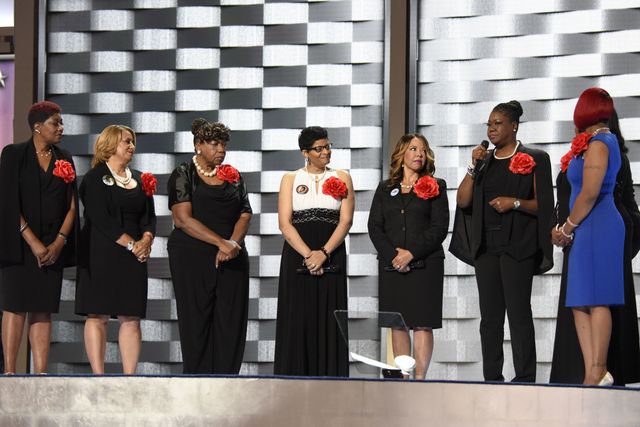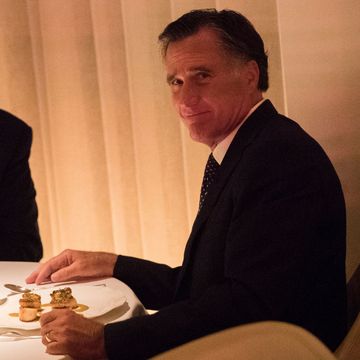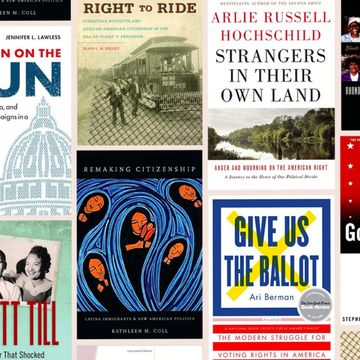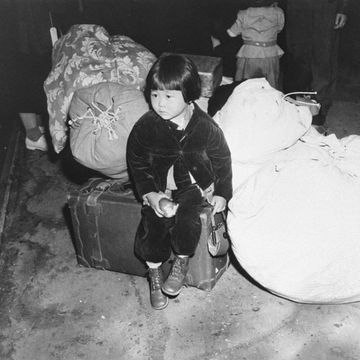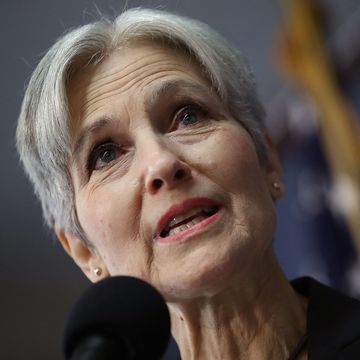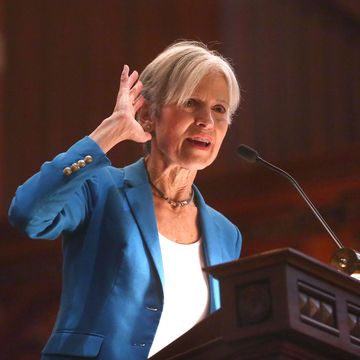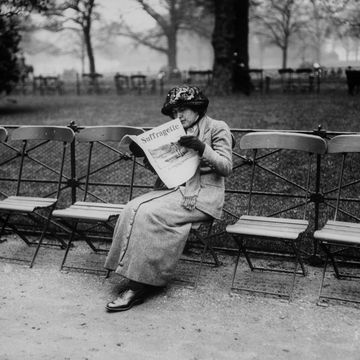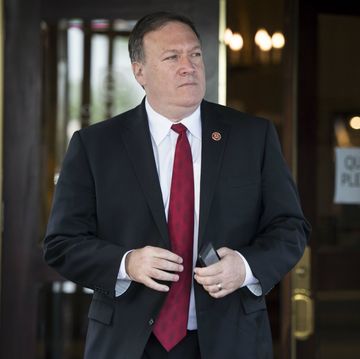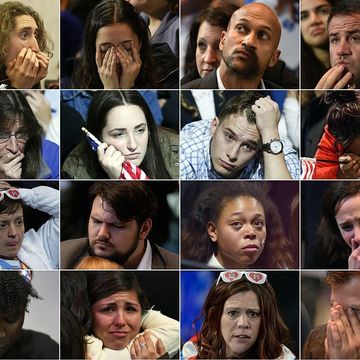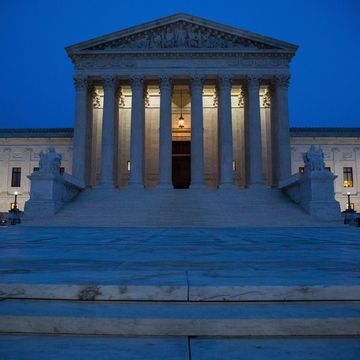"Hey, MHP, can you help me?"
Just as I walked into the Wells Fargo Center early Tuesday evening, I heard the familiar voice of a girlfriend who works with a nonprofit. She was trying to balance an impressive array of fried foods while making her way to the elevator. She is in health care and super fit. This was an odd scene.
"The Mothers haven't eaten yet," she explained.
Then I understood. She must have been assisting the Hillary Clinton campaign to coordinate the Mothers of the Movement, who would be speaking later in the evening. These African American women had each endured the incalculable loss of a child. Each child had been slain by a police officer, died in police custody, or killed by an armed civilian. In nearly every case, the American criminal justice system has failed to hold anyone accountable or impose any punishment for the untimely death of the child. Together, their losses represent more than the private agony of individual grief; they are living representations of our intergenerational bereavement. Theirs are the empty arms of black mothers that America has produced for centuries.
When these women tell you they need something to eat, you go get it. If your friend asks you to help carry dinner to these women; you carry it. It really does not matter if you are scheduled to be on television. I grabbed a share of the dinners and followed her to the elevator. As the doors were closing, we were joined by Cleopatra Pendleton-Cowley. Her 15-year-old daughter Hadiya was shot and killed in a park on Chicago's Southside just weeks after she took part in the second inaugural parade for President Obama. Now Cleo was here to endorse a candidate to replace him in office.
I will never forget that I was carrying nachos, fries, and burgers, when I walked into a suite to find Trayvon Martin's mother, Sybrina Fulton, watching as Representative John Lewis seconded the nomination of Hillary Clinton for the U.S. Presidency. As soon as Sybrina saw me, she embraced me with a warm and genuine hug. Sybrina always does this when we see one another. It never ceases to throw me off balance emotionally. Every single time I see her I want to apologize, because every time I see her there has been another death or two or ten. And there have been more acquittals or more refusals to indict. Each time I see Sybrina I am overwhelmed by guilt that as a member of American media I have not yet found a way to wring justice from this system in the name of her son. All she ever does is hug me, tell me about the work she is doing, and ask how my children are faring.
Lucia McBath did the same last night. When she found me there she gave a little shout of happiness. How could I deserve any such reception? Her 17-year old son Jordan Davis was killed because an armed, adult man decided he hated the loud music Jordan's friends were playing, and fired into the car in which he was a passenger, until Jordan was dead. Why should I get a hug and a smile when we are still waking up every morning to another gun death? But Lucy reminded us on Tuesday that even though her son was killed, she is still his mother. She treats me with kindness and grace because she is still setting an example for her son, as any good mother would.
I took a moment to reconnect with Wanda Johnson. We met last month in Los Angeles when she joined me for a community forum about policing reform and discussed the death of her son, 22-year old Oscar Grant. Oscar was shot by a BART Transit officer on New Year's Eve 2009 even though he was lying facedown with his hands behind his back at the time. Wanda explained to me that Oscar took public transportation that night at her urging. She reasonably assumed the train would be safer than driving on New Year's Eve. Instead her son was slain by the people sworn to protect him. She reminded me that as black parents there is no "talk" we can give our kids to keep them safe. There is no posture of humility, docility, or meekness that will shield them from racialized violence.
Annette Nance-Holt and I talked for a long time on Tuesday about our shared love of the city of Chicago, and about common friends at St. Sabina's church. She told me how impressed she is with the dedication of Representative Robin Kelly to get something done about guns. Maria Hamilton introduced herself to me for just long enough to say, "I am Maria. My son Dontre was killed too."
"Yes, I know," I answered
Michael Brown's mother, Lezley McSpadden, and Eric Garner's mother, Gwen Carr, were on the other side of the room, and not knowing either one previously, it seemed like the wrong time to introduce myself. I wanted to leave them in peace. The atmosphere was completely relaxed, and not at all somber, but it was serious. And the space was theirs.
I finally worked up the courage to sit for a few moments with Geneva Reed-Veal. The last time she and I were together, we served jointly on a panel to deliver testimony for the newly formed Congressional Caucus on Black Women and Girls. As the lead witness, I was very proud of my testimony. It was full of statistics and held together by a fine metaphor. Geneva gave the closing on our panel. It was devastating. Speaking without notes, she explained that all the academic theories and literary metaphors in the world could not capture her experience as a mother. She'd sent her healthy daughter to Texas in a car. She returned in a casket.
"Are you going to speak tonight?" I asked Geneva.
"I am," she responded in the distinct and regal cadence that leaves no room for confusion about her meaning.
"Have they seen your remarks?" I asked.
"No."
"Wait a minute. Really?" I asked.
"Really," she responded.
Honestly, I was a bit stunned. The Clinton campaign is known for its tight messaging. The idea that the Mothers of the Movement, and Geneva Reed-Veal in particular had not been forced to vet their remarks prior to their appearance suggested a level of authenticity I was genuinely surprised to encounter. And I wasn't sure what to expect when they took the stage later that evening. We said our goodbyes when it was time for them to ready themselves.
I have barely been able to process what happened next. All of them now dressed and adorned—Geneva Reed-Veal, Sybrina Fulton, and Lucia McBath speaking for the group.
They stood center stage as delegates chanted "Black lives matter." And then, the unthinkable: Geneva Reed-Veal praised God, thanked the divine for the greatness of the universe, stood in gratitude for life, spoke with love about the joy of her daughter's being, called the names of others lost in police custody. Lucia McBath reminded us who Jordan was in life, told she is still his mother, insisted we do better as a nation, required us to vote. Sybrina Fulton explained that she was an unwilling member of this sorority; she hopes no other mother would ever have to join her. They told us they support Hillary Clinton because it is the best opportunity we have to do better as a country.
People clapped. They cried. They declared it powerful.
Not me. I want to be clear. I am with them. THEM. If they tell me to be with her, then OK, fine. But if they say we are going somewhere else, that is where the hell I am going.
This is what I know. What happened last night could never have happened if roles were reversed. Indeed, it is so utterly unthinkable in all of American history as to be laughable, ludicrous.
Imagine a circle of white women whose children were recently slain, mostly by black men—men who are, for the most part, still free and will never be held accountable for the deaths of their children. Imagine those white women, whose children are dead at the hands of still-free black men, standing together in solidarity as they collectively raise their voices to endorse the candidacy of a black woman for the highest office in the land.
No 30 seconds of "Black lives matter" chanting from DNC delegates can smooth the strangeness of what I witnessed last night: the depth of the mothers' humanity measured against the shallow engagement of nearly every other person in the arena. Our tweets, videos, and morning wrap-ups feel dirty next to what they did, what they had to sacrifice to gain any measure of justice for the children we stole from them.
Sure, I'll register. I'll vote. I'll make some calculation between the lesser of two evils. But let's be clear: I am with them. I am with them. I am with them.
